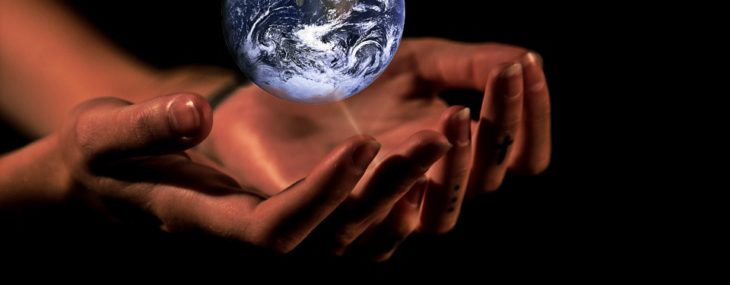When was the last time you felt overcome with wonder? Holding a newborn baby? Or how about a moment when you were mysteriously protected in a car crash? Or a realization that you or someone you love had been miraculously healed?
Maybe those kinds of things are too rare.
It could be something more commonplace—a painted pink and purple sunset splashed around a rising moon. Or maybe when some quiet person at work cracks a really funny joke.
Somehow, wonderment fades as we get older. It begins to elude us. Nothing new under the sun…been there, done that. We gradually approach life with dull hearts. A light goes out.
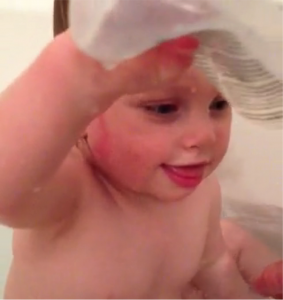 Young children, on the other hand, live in a constant state of wonder. I remember sitting for nearly an hour watching my young granddaughter discover the substance of water in the bathtub. Don’t get me wrong—it wasn’t her first bath.
Young children, on the other hand, live in a constant state of wonder. I remember sitting for nearly an hour watching my young granddaughter discover the substance of water in the bathtub. Don’t get me wrong—it wasn’t her first bath.
I’d given her a small plastic bottle to play with. Over and over and over, she filled the bottle with water, watching the bubbles escape as they popped and sputtered. And if bubbles weren’t fascinating enough, there was more! Slowly, she poured out the water in a thin stream, making a different kind of sound and then studied how the clear substance vanished into the rest of the bath.
Water! Utterly captivating.
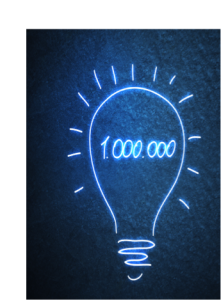 My friend Robin had a teacher who wanted to expand the young minds of her students by giving them a concept of what a million looks like. The teacher said if anyone could make a million marks on paper, their grade would go up a level. Some students needed the extra credit and cleverly used the holes from spiral notebook covers to make several dozen “marks” with one stroke. Page after page, thousands of marks started to pile up. But hours and hours and hours passed, followed by days and days and days.
My friend Robin had a teacher who wanted to expand the young minds of her students by giving them a concept of what a million looks like. The teacher said if anyone could make a million marks on paper, their grade would go up a level. Some students needed the extra credit and cleverly used the holes from spiral notebook covers to make several dozen “marks” with one stroke. Page after page, thousands of marks started to pile up. But hours and hours and hours passed, followed by days and days and days.
Eventually the class compiled their stacks to see if they could achieve a million together, giving it to the student who needed a better grade the most. They persisted and finally reached a million. A collective sigh sounded. Robin said she’d never forget the experience. A million was an enormous concept.
Yet today, a million seems like nothing. Our government spends millions and millions of dollars every day. Wonder perishes in familiarity.
Our mindset can limit what we see. Some look at a window and see a crack in the glass, bug splats, or fingerprint smudges. Others look past the immediate pane, to a much larger and complex world. Wonder has something to do with seeing beyond the humdrum, turning our “set minds” inside out, into a state of expectancy. Consider this…
Two different people linked me to a fascinating article by Eric Metaxas in the Wall Street Journal called, “Science Increasingly Makes the Case for God.” If you need a good dose of wonder, I suggest reading the entire article.
 The short version is…about astronomer Carl Sagan’s claim in 1966 that only two things were needed for life to exist on a planet: the right kind of star (sun) and the appropriate distance from it. Odds were, given an octillion planets, at least a septillion of them should support life. The idea launched a frenzy of research and telescopic space exploration including SETI, funded by the government.
The short version is…about astronomer Carl Sagan’s claim in 1966 that only two things were needed for life to exist on a planet: the right kind of star (sun) and the appropriate distance from it. Odds were, given an octillion planets, at least a septillion of them should support life. The idea launched a frenzy of research and telescopic space exploration including SETI, funded by the government.
But as our science of the universe developed, far more factors than Sagan surmised became evident. “Today,” Metaxas writes, “there are more than 200 known parameters necessary for a planet to support life—every single one of which must be perfectly met, or the whole thing falls apart.” For example, our planet needs a larger planet like Jupiter to draw asteroids away from our gravitation pull or we’d be bombarded.
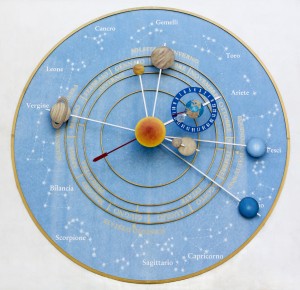 Or how about the four fundamental forces? Astrophysicists have identified that gravity, the electromagnetic force, and strong and weak nuclear forces exist in precise balance. “For instance, if the ratio between the nuclear strong force and the electromagnetic force had been off by the tiniest fraction of the tiniest fraction—by even one part in 100,000,000,000,000,000—then no stars could have ever formed at all. Feel free to gulp.”
Or how about the four fundamental forces? Astrophysicists have identified that gravity, the electromagnetic force, and strong and weak nuclear forces exist in precise balance. “For instance, if the ratio between the nuclear strong force and the electromagnetic force had been off by the tiniest fraction of the tiniest fraction—by even one part in 100,000,000,000,000,000—then no stars could have ever formed at all. Feel free to gulp.”
Without a Creator, how did our planet achieve the mindboggling odds for the precise conditions of life?
At what point does our existence prove we are more than a random set of coincidences?
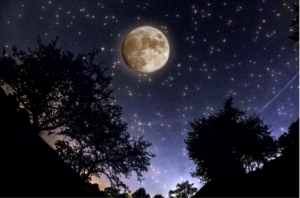 The universe is a miracle of miracles, swirling around us on a starry night. And as wondrous as it is, I am a million times more moved thinking about the Creator behind it all. He is infinite and omniscient, eternal and omnipotent.
The universe is a miracle of miracles, swirling around us on a starry night. And as wondrous as it is, I am a million times more moved thinking about the Creator behind it all. He is infinite and omniscient, eternal and omnipotent.
 Still, the most fantastic part of His existence is that He is a loving Father who knows us and has the very hairs of our heads counted. David said, “What is man, that You should even consider him?” But He does, far more than we know. And He made us for relationship with Him.
Still, the most fantastic part of His existence is that He is a loving Father who knows us and has the very hairs of our heads counted. David said, “What is man, that You should even consider him?” But He does, far more than we know. And He made us for relationship with Him.
Oh the wonder of that thought alone!
What makes you wonder?
